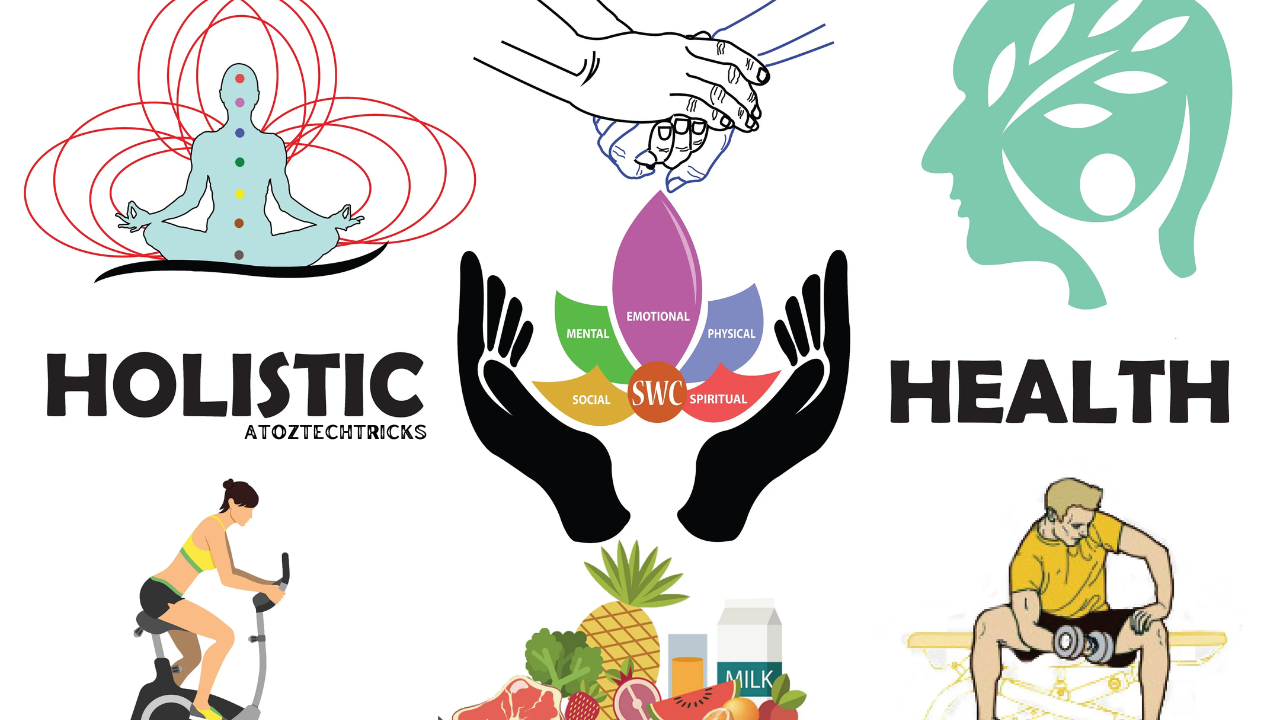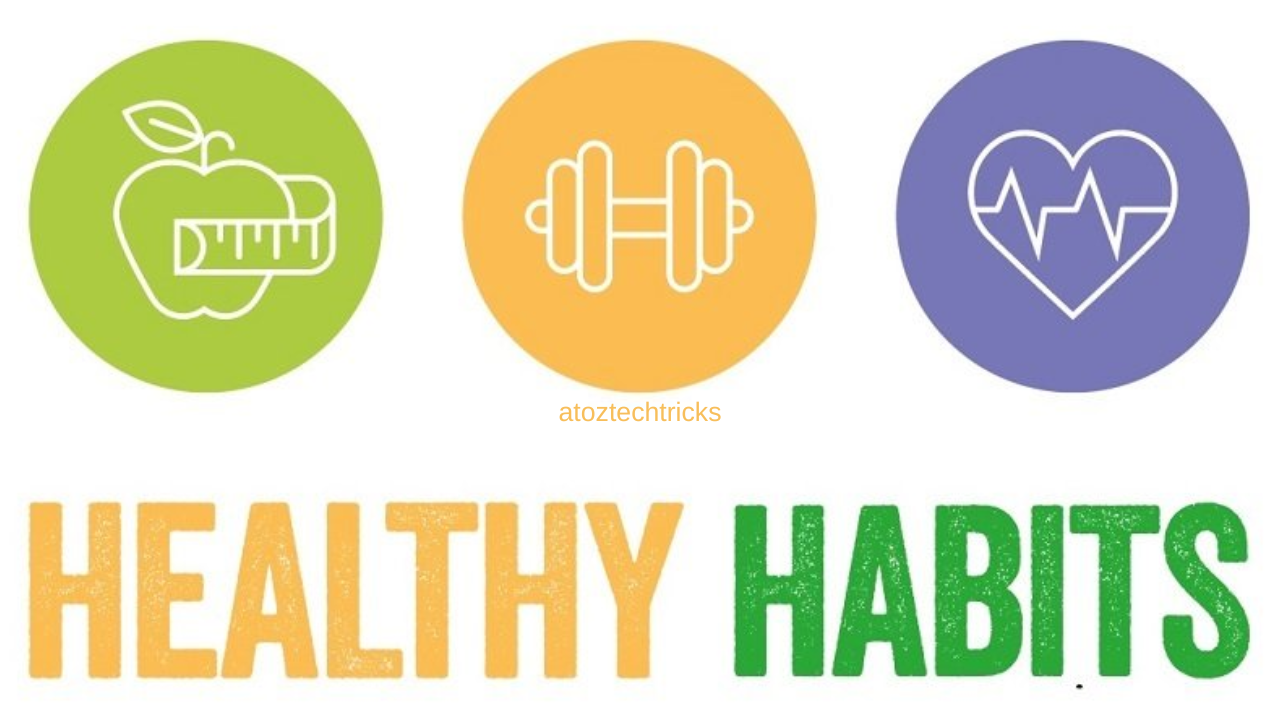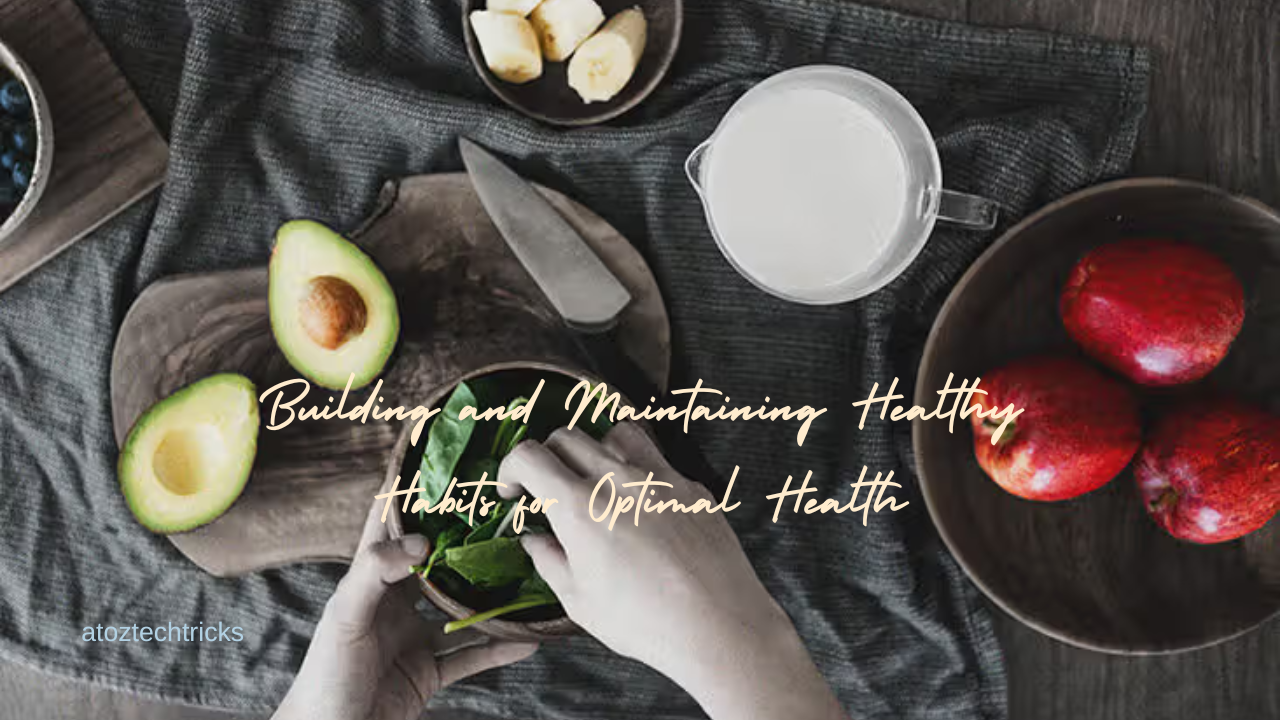Holistic Approaches to Maintaining Physical Health
Maintaining physical health is a multifaceted endeavour that goes beyond just eating well and exercising. Holistic health embraces the integration of physical, mental, emotional, and spiritual well-being, recognizing that each of these aspects contributes to overall health. This comprehensive approach ensures that individuals lead a balanced, fulfilling life. In this article, we will explore various holistic approaches to maintaining physical health, providing insights into how you can achieve a more harmonious and healthful lifestyle.
Understanding Holistic Health
What is Holistic Health?
Holistic health is an approach to wellness that considers the whole person rather than just isolated symptoms or conditions. It emphasizes the interconnectedness of mind, body, and spirit, advocating that optimal health is achieved through a balance of these elements. This approach is rooted in the idea that true health is not merely the absence of disease but the presence of well-being.
The Importance of Balance
In holistic health, balance is crucial. Physical health is not just about managing weight or preventing illness; it’s about creating a harmonious state where physical, mental, emotional, and spiritual health support each other. This balance can lead to increased energy, improved mood, and a greater sense of overall well-being.
Key Components of a Holistic Approach
1. Nutrition and Diet
Whole Foods
Eating a diet rich in whole, unprocessed foods is fundamental to holistic health. Whole foods, such as fruits, vegetables, whole grains, nuts, and seeds, provide essential nutrients that support bodily functions and promote healing. These foods are also high in antioxidants and other compounds that protect against chronic diseases.
Balanced Diet
A balanced diet includes a variety of food groups in appropriate proportions. It’s essential to include proteins, carbohydrates, healthy fats, vitamins, and minerals in your diet. This balance helps maintain energy levels, supports immune function, and promotes overall health.
Mindful Eating
Mindful eating involves paying full attention to the eating experience. This practice encourages you to eat slowly, savour each bite, and listen to your body’s hunger and fullness cues. Mindful eating can help prevent overeating, improve digestion, and enhance your relationship with food.
Preventative Measures for Physical Health: A Comprehensive Guide
2. Physical Activity
Regular Exercise
Regular physical activity is a cornerstone of physical health. Exercise helps maintain a healthy weight, improves cardiovascular health, strengthens muscles and bones, and enhances mood. Aim for a mix of aerobic exercises, strength training, and flexibility exercises.
Find What You Enjoy
Finding an activity you enjoy can make exercise more sustainable. Whether it’s dancing, hiking, swimming, or yoga, engaging in physical activities that you find enjoyable increases the likelihood of making exercise a regular part of your life.
Incorporating Movement into Daily Life
In addition to structured workouts, incorporating movement into daily routines can benefit your health. Simple activities like walking or biking to work, taking the stairs, or doing household chores contribute to overall physical activity and help combat a sedentary lifestyle.
3. Mental and Emotional Well-being
Stress Management
Chronic stress can negatively impact physical health, leading to issues such as high blood pressure, digestive problems, and weakened immunity. Effective stress management techniques, such as mindfulness, meditation, and deep-breathing exercises, can help reduce stress and promote relaxation.
Emotional Health
Emotional well-being is closely linked to physical health. Cultivating positive relationships, engaging in activities that bring joy, and seeking support when needed are essential for emotional health. Addressing emotional issues and fostering a positive mindset can contribute to overall wellness.
Mental Stimulation
Keeping the mind active through mental stimulation can enhance cognitive function and prevent age-related decline. Activities such as reading, puzzles, and learning new skills challenge the brain and contribute to mental health.
4. Sleep and Rest
Quality Sleep
Quality sleep is vital for physical health. During sleep, the body undergoes restorative processes that support immune function, repair tissues, and consolidate memories. Aim for 7-9 hours of sleep per night and establish a regular sleep schedule to promote restful sleep.
Creating a Sleep-Friendly Environment
Creating an environment conducive to sleep can improve sleep quality. Keep your bedroom cool, dark, and quiet, and establish a relaxing bedtime routine. Limiting exposure to screens and avoiding caffeine before bed can also enhance sleep.
5. Spiritual Wellness
Mindfulness and Meditation
Mindfulness and meditation practices can foster spiritual wellness by promoting a sense of inner peace and connection. These practices involve focusing attention on the present moment and cultivating a non-judgmental awareness of thoughts and feelings.
Finding Purpose
A sense of purpose and meaning in life can contribute to overall well-being. Engaging in activities that align with your values, pursuing personal goals, and connecting with others can enhance your sense of purpose and fulfilment.
Connection with Nature
Spending time in nature can have a profound impact on spiritual wellness. Nature provides a sense of tranquillity and helps reconnect you with the natural world. Activities like hiking, gardening, or simply enjoying the outdoors can promote relaxation and a sense of inner peace.
6. Preventive Healthcare
Regular Check-ups
Regular medical check-ups are essential for maintaining physical health and preventing disease. Routine screenings, vaccinations, and health assessments can help detect potential issues early and address them before they become serious.
Holistic Therapies
Incorporating holistic therapies, such as acupuncture, chiropractic care, and herbal medicine, can complement conventional medical treatments. These therapies focus on balancing the body’s energy and supporting overall health and well-being.
7. Hydration
Importance of Water
Proper hydration is crucial for maintaining physical health. Water supports various bodily functions, including digestion, circulation, and temperature regulation. Aim to drink adequate amounts of water daily to stay hydrated and support overall health.
Hydrating Foods
In addition to drinking water, incorporating hydrating foods into your diet can contribute to your overall hydration. Fruits and vegetables with high water content, such as cucumbers, watermelon, and oranges, can help meet your hydration needs.

Integrating Holistic Approaches into Daily Life
Creating a Personalized Plan
To successfully integrate holistic approaches into your life, it’s essential to create a personalized health plan. Start by assessing your current lifestyle and identifying areas for improvement. Set realistic goals and develop a plan that incorporates various aspects of holistic health, including nutrition, physical activity, stress management, and spiritual wellness.
Building Healthy Habits
Building healthy habits requires consistency and dedication. Start with small, manageable changes and gradually incorporate them into your routine. For example, begin by adding more fruits and vegetables to your diet, or by setting aside time for daily physical activity. Over time, these small changes can lead to significant improvements in your overall health.
Seeking Support and Resources
Seeking support from healthcare professionals, wellness coaches, or support groups can enhance your journey toward holistic health. These resources can provide guidance, motivation, and accountability as you work towards your health goals.
Embracing a Positive Mindset
A positive mindset is a powerful tool in achieving and maintaining holistic health. Embrace a growth mindset and view challenges as opportunities for learning and growth. Celebrate your successes and be compassionate with yourself during setbacks.
Holistic approaches to maintaining physical health offer a comprehensive and balanced path to well-being. By focusing on the interconnectedness of mind, body, and spirit, you can achieve a harmonious state of health that supports overall wellness. Incorporating practices such as mindful eating, regular physical activity, stress management, quality sleep, and spiritual wellness into your daily life can lead to a more fulfilling and healthful existence.
Remember that achieving holistic health is a journey, not a destination. It requires ongoing effort, self-awareness, and a willingness to embrace change. By taking a holistic approach, you can create a foundation for a vibrant and resilient life that supports your physical, mental, emotional, and spiritual well-being.




Post Comment